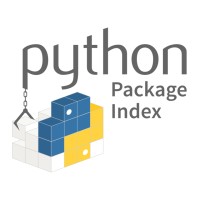
PyPI
The Python Package Index (PyPI) is a repository of software for the Python programming language



The Python Package Index (PyPI) is a repository of software for the Python programming language

The first business of Alibaba Group, Alibaba.com (www.alibaba.com) is the leading platform for global wholesale trade serving millions of buyers and suppliers around the world. Through Alibaba.com, small businesses can sell their products to companies in other countries. Sellers on Alibaba.com are typically manufacturers and distributors based in China and other manufacturing countries such as India, Pakistan, the United States and Thailand. Our Mission As part of the Alibaba Group, our mission is to make it easy to do business anywhere. We do this by giving suppliers the tools necessary to reach a global audience for their products, and by helping buyers find products and suppliers quickly and efficiently. One-Stop Sourcing Alibaba.com brings you hundreds of millions of products in over 40 different major categories, including consumer electronics, machinery and apparel. Buyers for these products are located in 190+ countries and regions, and exchange hundreds of thousands of messages with suppliers on the platform each day. Anytime, Anywhere As a platform, we continue to develop services to help businesses do more and discover new opportunities. Whether it’s sourcing from your mobile phone or contacting suppliers in their local language, turn to Alibaba.com for all your global business needs.
Security & Compliance Standards Overview












No incidents recorded for PyPI in 2025.
No incidents recorded for Alibaba.com in 2025.
PyPI cyber incidents detection timeline including parent company and subsidiaries
Alibaba.com cyber incidents detection timeline including parent company and subsidiaries
Last 3 Security & Risk Events by Company
ThingsBoard in versions prior to v4.2.1 allows an authenticated user to upload malicious SVG images via the "Image Gallery", leading to a Stored Cross-Site Scripting (XSS) vulnerability. The exploit can be triggered when any user accesses the public API endpoint of the malicious SVG images, or if the malicious images are embedded in an `iframe` element, during a widget creation, deployed to any page of the platform (e.g., dashboards), and accessed during normal operations. The vulnerability resides in the `ImageController`, which fails to restrict the execution of JavaScript code when an image is loaded by the user's browser. This vulnerability can lead to the execution of malicious code in the context of other users' sessions, potentially compromising their accounts and allowing unauthorized actions.
Mattermost versions 11.0.x <= 11.0.2, 10.12.x <= 10.12.1, 10.11.x <= 10.11.4, 10.5.x <= 10.5.12 fail to to verify that the token used during the code exchange originates from the same authentication flow, which allows an authenticated user to perform account takeover via a specially crafted email address used when switching authentication methods and sending a request to the /users/login/sso/code-exchange endpoint. The vulnerability requires ExperimentalEnableAuthenticationTransfer to be enabled (default: enabled) and RequireEmailVerification to be disabled (default: disabled).
Mattermost versions 11.0.x <= 11.0.2, 10.12.x <= 10.12.1, 10.11.x <= 10.11.4, 10.5.x <= 10.5.12 fail to sanitize team email addresses to be visible only to Team Admins, which allows any authenticated user to view team email addresses via the GET /api/v4/channels/{channel_id}/common_teams endpoint
Exposure of email service credentials to users without administrative rights in Devolutions Server.This issue affects Devolutions Server: before 2025.2.21, before 2025.3.9.
Exposure of credentials in unintended requests in Devolutions Server.This issue affects Server: through 2025.2.20, through 2025.3.8.